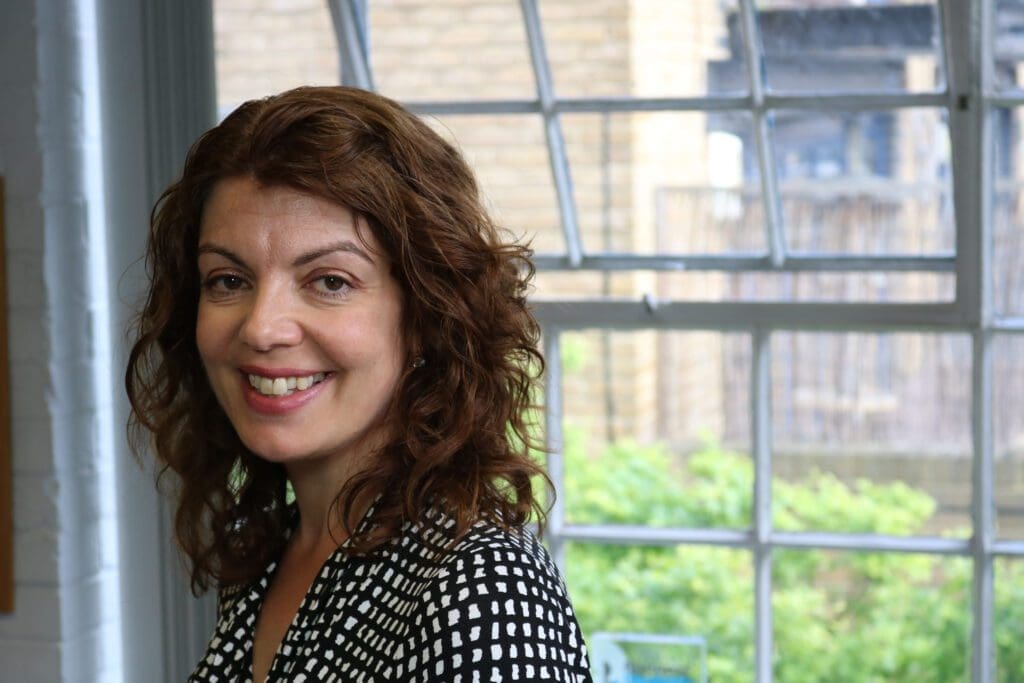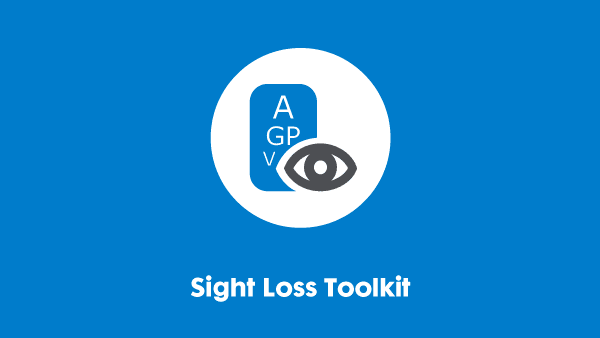Last reviewed: November 2024
Eelke Roos, Head of Ophthalmology, Roche UK

At Roche UK, we are focused on researching and developing new treatments, aiming to redefine standards of care for people living with sight loss. We are committed to listening, understanding and partnering in order to co-create solutions that will improve peoples’ lives.
As the Head of Ophthalmology at Roche UK, I believe more can and should be done to protect and ensure the wellbeing of those living with sight loss. That is why we have partnered with the Business Disability Forum to develop this toolkit which will enable the 2 million people living with sight loss in the UK to maintain their independence by removing social barriers.
Eelke Roos, Head of Ophthalmology, Roche UK
Diane Lightfoot, CEO, Business Disability Forum

In the UK, 250 people start to lose their sight every day (source: RNIB [PDF]). This is the equivalent of one person every six minutes. It is estimated that 4.1 million people will be affected by sight loss in the UK by 2050. Globally, the International Agency for the Prevention of Blindness also predicts that by 2050, the number of blind people globally will increase to 61 million, and the number of people with moderate to severe sight loss will increase to 474 million.
Yet, too often, people with sight loss are literally unable to access goods, services and employment opportunities due to inaccessible communications or physical environments or lack of understanding from employers, colleagues and service providers. Only one in four registered blind and partially sighted people are in employment in the UK (source: RNIB). This is a huge waste of talent.
Many people are unaware of the breadth of the term “sight loss” and the wide spectrum it covers. Some are very surprised to find that most “blind” people do have some residual sight, which can lead to misunderstanding, lack of support or worse, abuse. We hear too many stories of people with sight loss who are the subject of hate crime on public transport from other passengers who assume they can’t see what is happening. And, when we were creating our Welcoming Disabled Customers Guide, it was sad to hear stories from people with sight loss who could see shop assistants noticing their guide dog or white cane and turning and almost running in the opposite direction. At the root of this I believe is fear; the fear of getting it wrong, of causing offence or upset. This too often results in people saying or doing nothing when just saying “how can I help?” or “What do you need?” can go a long way. A (true) story I repeat often is one where a candidate for a job contacted the hiring manager to ask for an adjustment for interview. Rather than simply clarifying what the adjustment was, the manager went through many layers of management and HR to ask for advice before eventually going back and asking the question. It turned out that the candidate had sight loss and wanted a bowl of water for her guide dog.
This Toolkit is for anyone interested in sight loss, and no prior knowledge about sight loss is required. However, we have written sections specifically for clinicians and other healthcare professionals, who play such a key role, especially at the point of diagnosis; employers and businesses to help them provide practical support and for individuals with sight loss, and their family and friends.
My sincere thanks to Roche for conceiving and commissioning this new toolkit – the latest in our series to support businesses of all shapes, sizes and sectors to become truly Disability Smart. My thanks too to our steering group of Partners, Members and most importantly, people with lived experience of sight loss for giving their time and deep insight to inform its content. I really hope it equips you with the confidence to support your colleagues and customers with sight loss and to enable everyone to thrive in the workplace and in society.
Diane Lightfoot, CEO, Business Disability Forum
Disclaimer: The Sight Loss Toolkit has been commissioned and funded by Roche Products Ltd.
Material Number (M-GB-00018540)
Date of preparation: November 2024
If you require this content in a different format, contact enquiries@businessdisabilityforum.org.uk.
© This resource and the information contained therein are subject to copyright and remain the property of the Business Disability Forum. They are for reference only and must not be copied or distributed without prior permission.
